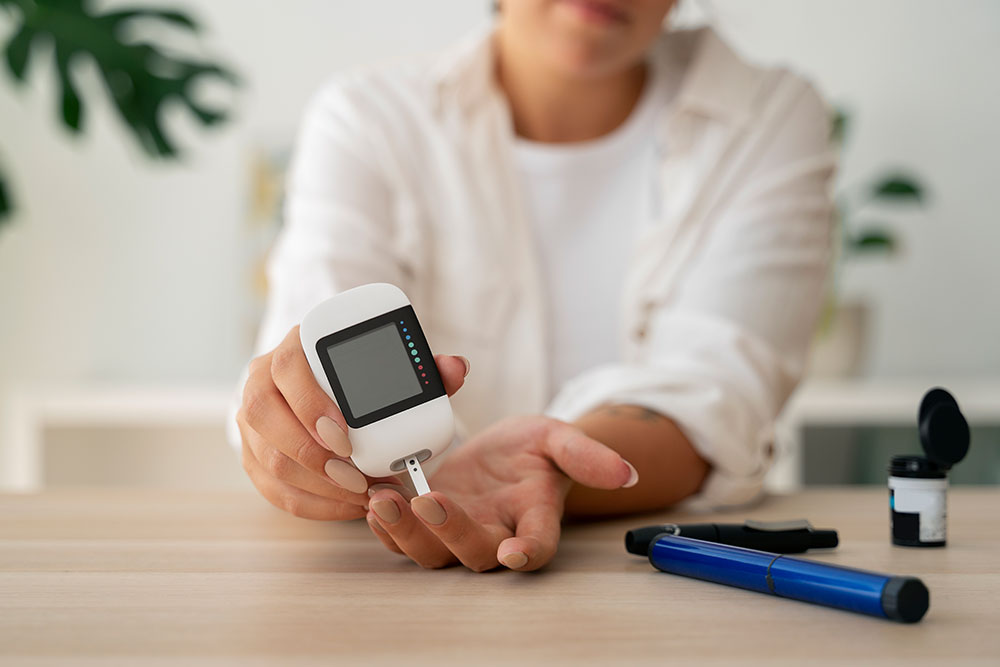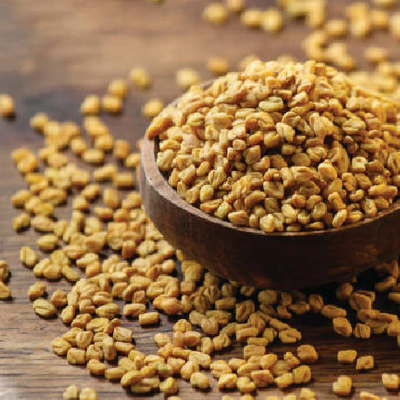- +033 2572 7171
- info@dhanvantary.com

4.5 Rating | 4500 Review

4.5 Rating | 4500 Review
In Ayurveda, diabetes is known as "Prameha" and is primarily caused by an imbalance in the three doshas (Vata, Pitta, and Kapha), particularly an increase in Kapha dosha.

Madhumeha is the term used in Ayurveda to describe a condition similar to diabetes, particularly Diabetes Mellitus. It is one of the 20 types of Prameha, which refers to a group of urinary disorders caused by improper metabolism and lifestyle factors. The term Madhumeha comes from "Madhu", meaning honey, and "Meha", meaning urine, as the urine of a person with this condition is said to be sweet due to the presence of excess sugar.
According to Modern medical science, Diabetes is a condition that affects how your body turns food into energy. Normally, when you eat food, your body breaks it down into sugar (glucose), which enters your bloodstream. Your pancreas produces a hormone called insulin that helps your cells use this sugar for energy. If you have diabetes, your body either doesn’t make enough insulin or doesn’t use it well, causing sugar to build up in your blood.
Ayurveda identifies 20 types of Prameha (diabetes-like disorders), which are grouped based on the dominant dosha :
Related to excess Kapha (mucus and fat), and often easier to manage.
Linked to excess heat in the body, involving bile and metabolic dysfunction.
The most serious and harder to treat, linked to a severe imbalance in Vata (air and space elements).
The body doesn’t produce insulin (a hormone that helps control blood sugar).It’s usually diagnosed in children and young adults. Requires insulin injections or a pump for management.
The body either doesn’t produce enough insulin or doesn’t use it properly. It's more common in adults but is also affecting younger people nowadays.
This occurs during pregnancy and usually goes away after the baby is born. Due to the effect of Placental hormones increase the body cell resistance to insulin .It can increase the risk of developing Type 2 diabetes later.
Blood sugar levels are higher than normal but not high enough to be diagnosed as diabetes.It’s a warning sign that diabetes might develop if lifestyle changes aren't made.
Overeating sweet, fatty, and heavy foods, excessive dairy, and cold foods can disrupt digestion and increase Kapha.
Lack of physical activity contributes to obesity and sluggish metabolism, making it harder for the body to process sugar.
A family history of diabetes (inherited tendencies) is also considered.
Urinating frequently, especially at night.
In ancient times, the sweet taste of urine was used as a diagnostic sign (now it's recognized as sugar in urine).
Feeling very thirsty often, even after drinking water.
Feeling hungry frequently, even after meals.
Experiencing dry mouth frequently.
Feeling constantly tired and low on energy.
Unintentional weight loss despite eating more.
In a nutshell, diabetes in Ayurveda is linked to lifestyle and diet imbalances, and treatment focuses on balancing the body’s doshas, detoxification, and adopting healthy habits.
Poor circulation and nerve damage in the feet can lead to infections or ulcers that are slow to heal.
Diabetes can damage the blood vessels in the eyes, leading to blurry vision or even blindness over time.
Uncontrolled diabetes can affect nerves, especially in the feet and hands, leading to numbness, tingling, or pain.
Diabetics are more prone to heart problems and strokes due to high blood pressure and cholesterol.
High blood sugar can damage the kidneys, potentially leading to kidney failure.
Diabetics may experience various skin conditions, such as infections, itching, and dryness.
Men with diabetes may experience erectile dysfunction, while women may have irregular menstrual cycles or fertility problems.
Diabetics are more susceptible to infections due to a weakened immune system and slow healing of wounds.
Poorly controlled diabetes can affect brain function over time, leading to memory loss and cognitive decline.
The Ayurvedic treatment for diabetes focuses on balancing the doshas through diet, herbs, detoxification, and lifestyle changes. It’s a holistic approach that aims not only to manage blood sugar but to restore the body’s overall balance.
The treatment of Diabetes (Madhumeha) focuses on addressing the root cause by balancing the doshas (especially Kapha and Vata), improving digestion, eliminating toxins, and supporting the body's natural ability to process sugar.
A healthy diet is key to managing diabetes, as it helps balance the doshas and promotes better digestion.
Light, bitter, and astringent foods help reduce Kapha and excess fat. These include green leafy vegetables, bitter gourd (Karela), fenugreek seeds, and barley.
Foods like sugary snacks, fried foods, and dairy products can worsen Kapha and blood sugar levels.
Whole grains like barley, millet, and quinoa are recommended as they help stabilize blood sugar levels.
Physical activity is key in managing Kapha and controlling blood sugar. Activities like yoga, brisk walking, and cycling are recommended.
Chronic stress can elevate blood sugar levels. Meditation, mindfulness, and practices like Abhyanga (self-massage with oil) are recommended to calm the mind and body.
Regular monitoring of Blood sugar levels, HbA1C, and Insulin levels help control Diabetes much better.
According to Ayurveda variety of herbs to manage blood sugar levels and improve insulin sensitivity are advised to treat Diabetes :

Rich in Vitamin C and known to strengthen the pancreas, improving insulin production.

Reduces inflammation and supports healthy insulin function.

Known for its blood-sugar-lowering properties.

Helps detoxify the body and balance sugar levels.

Helps improve digestion and manage blood sugar.
